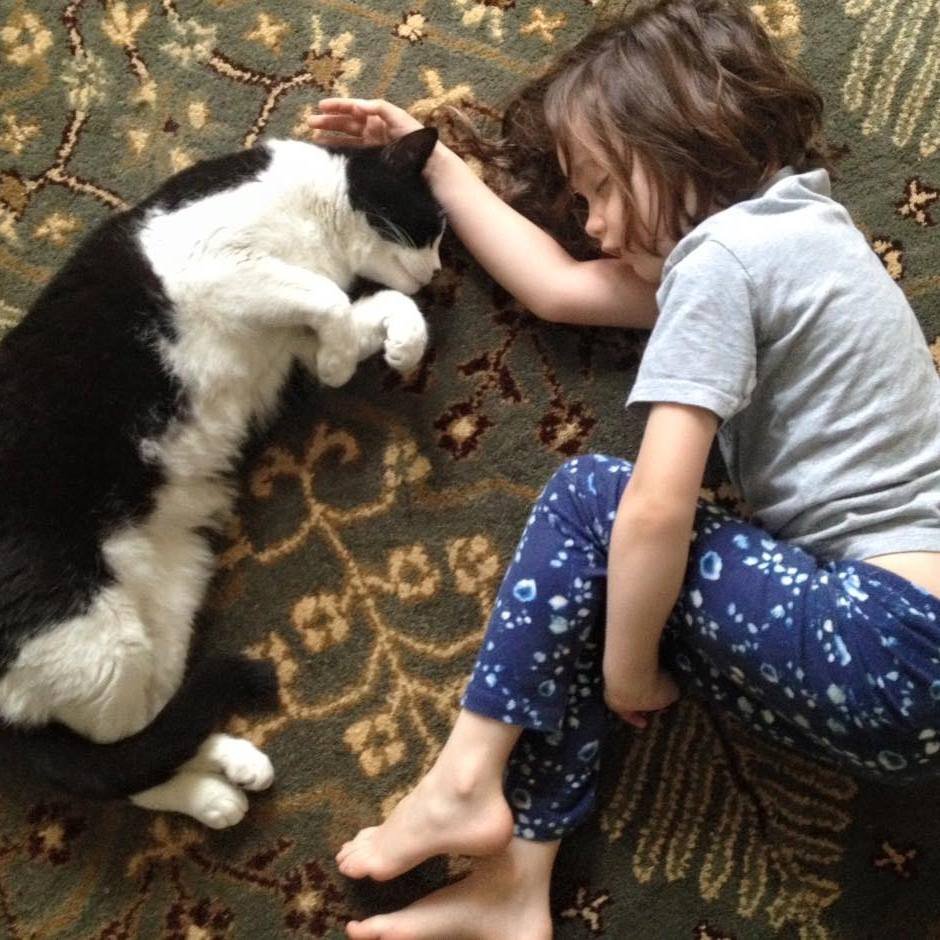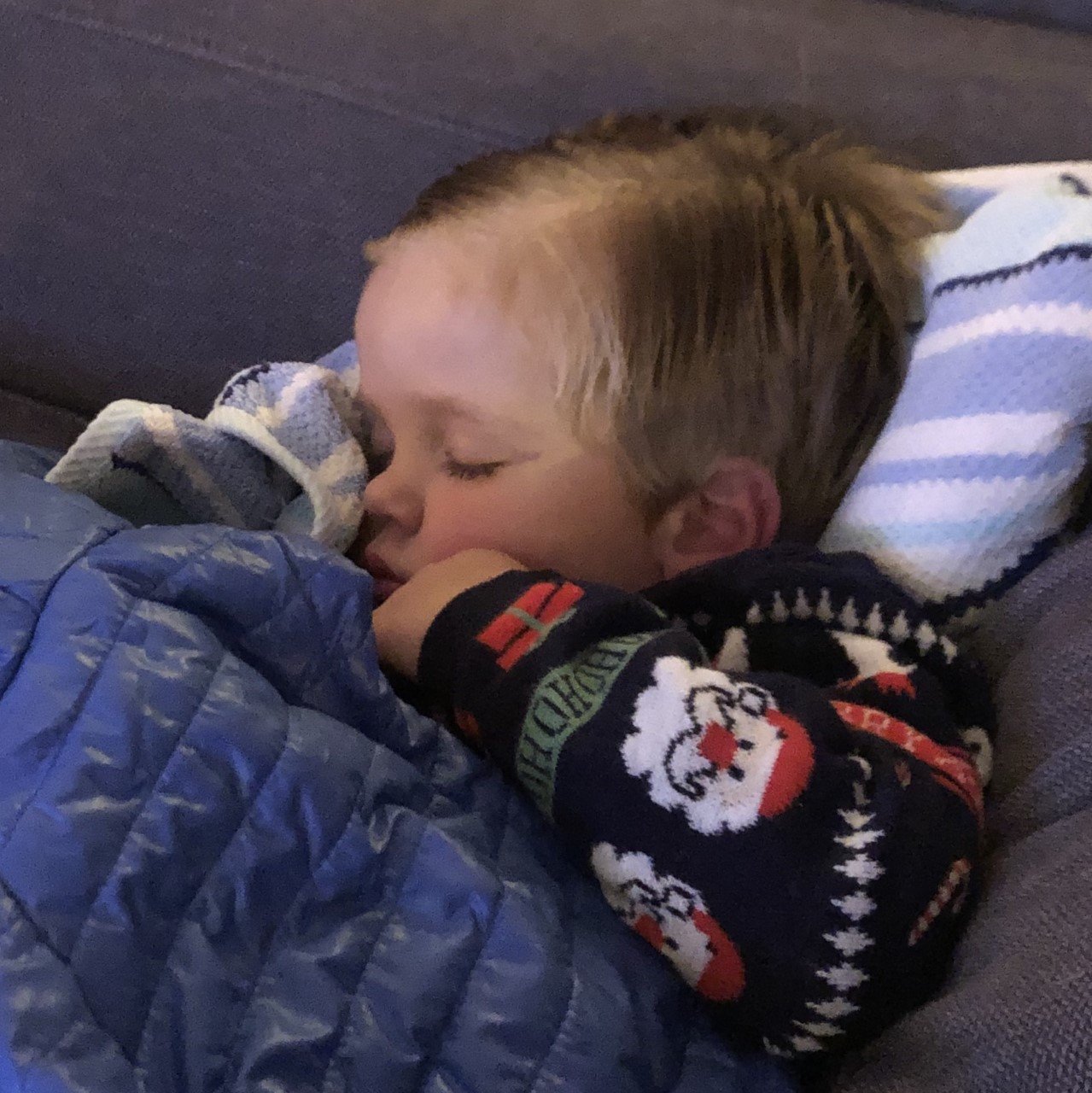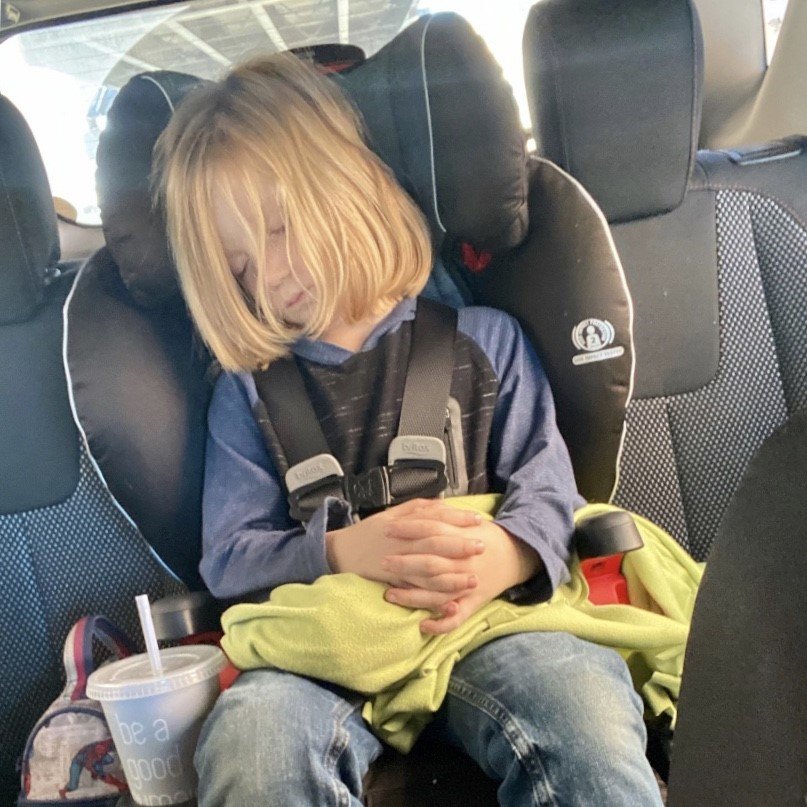Better Habits in 2020: Sleep!
 It's a new year and a new opportunity to check in with our family routines, to assess what is working and what might need a little work. In this series, Better Habits in 2020, we'll take a look at the kinds of things we can do to improve our and our children's lives. Today we'll start with what I personally believe is the mother of all good habits: sleep!Put simply, our brains and bodies just cannot do all they are supposed to do without adequate sleep—we depend on good, quality sleep for growth, memory, appetite regulation, physical fitness, heart health, emotional regulation, mental health, alert awareness, good performance at work or school, a working immune system and the ability to learn.
It's a new year and a new opportunity to check in with our family routines, to assess what is working and what might need a little work. In this series, Better Habits in 2020, we'll take a look at the kinds of things we can do to improve our and our children's lives. Today we'll start with what I personally believe is the mother of all good habits: sleep!Put simply, our brains and bodies just cannot do all they are supposed to do without adequate sleep—we depend on good, quality sleep for growth, memory, appetite regulation, physical fitness, heart health, emotional regulation, mental health, alert awareness, good performance at work or school, a working immune system and the ability to learn. While we might think of sleep as a time when everything shuts down, the truth is our bodies and brains, freed from the daily tasks of being awake, turn inward and get to work. Our physiological functions, like breathing, body temperature and heart rate, rest and slow down, conserving energy while the body generates and regenerates cells, heals damage and recovers from stress. And the brain works on organizing all of the data that came at it during the day. We lock in new information; consolidate and categorize that information with what we already know; build memories; carve out neural pathways for movement and speech; regulate emotions... the list goes on and on.This big work is happening in all of us, at every age, but in children this work is even bigger. They are physically growing and learning new things all the time. And the younger they are, the more growing and learning they are doing. From 0 to 6, children are absorbing, taking in everything—every single thing—around them, while also learning to walk, talk, eat, read and write. The right amount of sleep is absolutely essential for our children to be able to get this information settled into their brains and bodies. It is essential for them to be able to function happily and healthily.So what is the right amount of sleep? It's a lot more than many of us think. The American Academy of Pediatrics' recommendations for hours of sleep, by age group, are:
While we might think of sleep as a time when everything shuts down, the truth is our bodies and brains, freed from the daily tasks of being awake, turn inward and get to work. Our physiological functions, like breathing, body temperature and heart rate, rest and slow down, conserving energy while the body generates and regenerates cells, heals damage and recovers from stress. And the brain works on organizing all of the data that came at it during the day. We lock in new information; consolidate and categorize that information with what we already know; build memories; carve out neural pathways for movement and speech; regulate emotions... the list goes on and on.This big work is happening in all of us, at every age, but in children this work is even bigger. They are physically growing and learning new things all the time. And the younger they are, the more growing and learning they are doing. From 0 to 6, children are absorbing, taking in everything—every single thing—around them, while also learning to walk, talk, eat, read and write. The right amount of sleep is absolutely essential for our children to be able to get this information settled into their brains and bodies. It is essential for them to be able to function happily and healthily.So what is the right amount of sleep? It's a lot more than many of us think. The American Academy of Pediatrics' recommendations for hours of sleep, by age group, are:
- Infants 4 months to 12 months should sleep 12 to 16 hours per 24 hours (including naps).
- Children 1 to 2 years of age should sleep 11 to 14 hours per 24 hours (including naps).
- Children 3 to 5 years of age should sleep 10 to 13 hours per 24 hours (including naps).
- Children 6 to 12 years of age should sleep 9 to 12 hours per 24 hours.
- Teenagers 13 to 18 years of age should sleep 8 to 10 hours per 24 hours.
 The immediate effects of a lack of sleep are familiar to any of us: irritability, fatigue, foggy thinking and just a general feeling of blech—things that might be helped with a nap. But the long term effects of a deficiency of sleep can be much more severe, including trouble focusing and concentrating, reduced immune system function, extreme stress, slower reflexes, impulsivity, anger and depression. So how do we do better? How do we help our children get the sleep they need?Jessie Braud, Guide in our P2 Children's House, explains, "Routine, routine, routine! It cannot be overstated." Indeed, routine is consistently touted by the experts as essential to creating the habit of good sleep. Nighttime routines can involve baths, stories, soothing music, sing-alongs, a walk around the block, whatever works for your family.Jessie adds, "Your child can contribute greatly to crafting an ideal bedtime routine for your family, so don't be afraid to let them help plan! Children need far more sleep than we do to be truly healthy. It can be hard, especially when parents are working late and wanting to spend time with their children. Winding down after dinnertime is important. Tone down the noise, tone down the lights in the house and allow your child the space and time to actually get sleepy. Incorporate family time into the process; memories created over bath time and bedtime stories last for years."
The immediate effects of a lack of sleep are familiar to any of us: irritability, fatigue, foggy thinking and just a general feeling of blech—things that might be helped with a nap. But the long term effects of a deficiency of sleep can be much more severe, including trouble focusing and concentrating, reduced immune system function, extreme stress, slower reflexes, impulsivity, anger and depression. So how do we do better? How do we help our children get the sleep they need?Jessie Braud, Guide in our P2 Children's House, explains, "Routine, routine, routine! It cannot be overstated." Indeed, routine is consistently touted by the experts as essential to creating the habit of good sleep. Nighttime routines can involve baths, stories, soothing music, sing-alongs, a walk around the block, whatever works for your family.Jessie adds, "Your child can contribute greatly to crafting an ideal bedtime routine for your family, so don't be afraid to let them help plan! Children need far more sleep than we do to be truly healthy. It can be hard, especially when parents are working late and wanting to spend time with their children. Winding down after dinnertime is important. Tone down the noise, tone down the lights in the house and allow your child the space and time to actually get sleepy. Incorporate family time into the process; memories created over bath time and bedtime stories last for years."
Tone down the noise, tone down the lights in the house and allow your child the space and time to actually get sleepy. Incorporate family time into the process; memories created over bath time and bedtime stories last for years.Jessie Braud
For more ideas about how to cultivate good sleep habits for yourself and your family, here's a list of sources for this post and other suggested reading:
- Sleeping Through the Night by Jodi A. Mindell
- Why We Sleep by Matthew Walker
- American Academy of Pediatrics Supports Childhood Sleep Guidelines
- Children and Sleep
- Perfecting Your Child's Bedtime Routine
- Sleep and the Developing Brain
- Sleep Deprivation and Deficiency
- What is Sleep?
